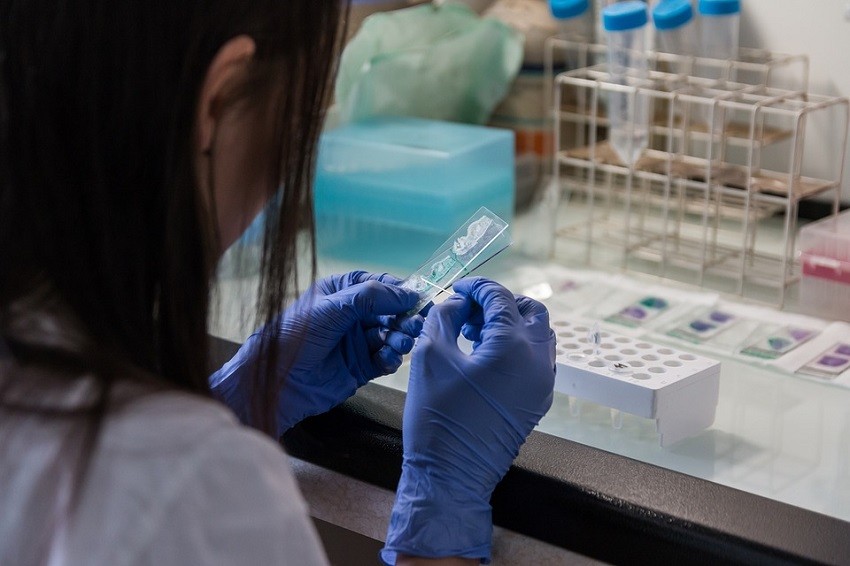Hospitals in Bulgaria are experiencing severe shortage of medics in a series of medical fields. Hospital wards in small Bulgarian towns are entirely relying on working retirees, while others have been already closed due to the lack of specialists. There is an acute shortage of medics in haematology, infectious diseases, rheumatology, endocrinology and ophthalmology. If measure are taken now and the places facing the highest shortage of workforce manage to attract enough specialists, the positive change will be visible in 10 years, experts say.
In the beginning of 2020, many Bulgarian hospitals, even the largest ones, faced a severe shortage of doctors amid the coronavirus pandemic. Many specialists went to Western Europe, where there was also a severe shortage of experienced staff. It is mostly young doctors who leave Bulgaria, continue their education and specialization abroad and stay there. The average age of doctors in Bulgaria is quite high and most experts are employed at hospitals in large Bulgarian cities such as Sofia, Plovdiv, Varna and Pleven.
According to a survey of Open Society Institute, only 5% of Bulgarian doctors are aged 30 or under. However, the failure in the reform of Bulgaria’s healthcare system is not due to the lack of young doctors. It is due to the lack of conditions for the development of these specialists in the country. It is the unpredictability in career development that makes healthcare workers emigrate.

Kardzhali district (located in Southeastern Bulgaria near the border with Greece) is facing the most severe shortage of medics. According to hospital directors from the towns of Dobrich (Northeastern Bulgaria) and Chirpan (Southeastern Bulgaria), this trend has existed for a long time and in their view, this is due to bad management of the processes in Bulgaria’s healthcare. It is not the fault of a separate department. It is the state’s fault and the fault of all its structures, Dr. Valeri Veselinov from the Regional Medical Association in Dobrich said. This Bulgarian city is in second-to-last place in terms of the number of doctors per capita:
“There is a clear risk that the smaller district hospitals will have the same fate of dozens of municipal hospitals that have been closed in recent years”, says Dr. Veselinov.

According to Dr. Georgi Zhelyazkov, Director of the Multiprofile Hospital in Dobrich, some hospital wards continue to function thanks to the working retirees.
“The problem regarding the lack of medical specialists is so big that it has already become a national issue. The resolution of this issue requires teamwork. On the one hand, the state must ensure adequate financing and conditions for specialization. On the other hand, the hospitals must ensure working conditions and opportunities for career development, additional training and qualification.”
According to Dr. Zhelyazkov and Dr. Veselinov, the young postgraduates are aiming at career opportunities first and then at financial security. Rostislava Petrova, who is a postgraduate in the neurosurgery ward in the hospital in Dobrich also agrees with this thesis. The management of the hospital attracted 15 postgraduates in 18 months:

“I have been working in the hospital for more than one year. It cost me a lot and has been at the expense of my spare time and private life. I chose the town of Dobrich, because the demand for personnel here is big. It is difficult to find a place for postgraduates in big cities such as Varna and Sofia. I am satisfied with the conditions in this hospital. That is why I decided to stay in Dobrich.”
Compiled by: Gergana Mancheva (interview by Diana Doncheva, BNR-Horizont)
English version: Kostadin Atanasov
Photos: pixabayFun physics experiments from all branches of physics, demonstrations of methods for searching for new worlds in space, the necessary conditions to call a planet ''Earth's twin'', meeting with Bulgarian exoplanet hunters at the Astronomy Department -..
700 Bulgarians have been diagnosed with haemophilia. 100 of them are children. The disease is usually hereditary, and the recommendation to families is to have their newborn boys tested at birth. Until recently, it was thought that only males..
Bulgaria is increasingly becoming part of the general trend and dynamics of European citizens changing their location. There are no inhospitable European countries, rather it is a matter of policies and different interests of the..
In response to a listener's question, in a series of publications Radio Bulgaria presents to its multilingual audience the types of documents giving the..

+359 2 9336 661
